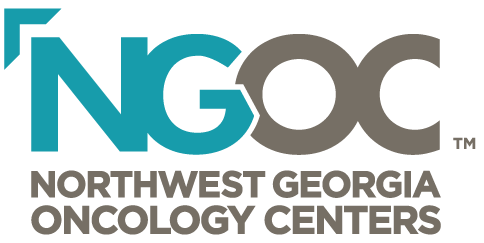Visit Our Oncology Centers
Our team looks forward to meeting you so we can start building a trusting relationship which is vital to fighting cancer with confidence, strength, and expertise.
As you prepare for your first appointment, we understand you may be scared, sad or even angry. You’re venturing into the unknown, but not to the unknowing. The NGOC cancer specialists and compassionate team of physician assistants and nurses are here to help navigate you through, make you feel welcome, answer your questions, and ready you for the fight.
- You’ll get an introduction to our compassionate patient-centered care and come to know it well as we walk alongside you on your cancer journey.
- Your cancer doctor will listen to your concerns, answer your questions and educate you about your diagnosis.
- You’ll get a balanced approach about the options and appropriateness of various cancer treatments that are best for you based upon risks and benefits.
- You’ll gain confidence with a personalized care plan using the most advanced treatments available.
- You’ll gain hope with the expertise, encouragement, and support of the NGOC team and other patients fighting cancer and blood disorders.
- Time and compassion.
We believe in building a mutually respectful and trusting relationship with you and your loved one and thoroughly discussing and educating you about your cancer diagnosis, prognosis, and treatment options. We want you to be confident and secure you’re receiving the best, evidence-based treatment available in the midst of a battle requiring heart, courage, and perseverance. - Access to advanced and emerging treatments.
We provide a balanced and personalized approach about the appropriateness and advancements in our cancer treatment options, including our offering of multiple clinical trials, with the participation rate often surpassing the national average. - Personalized, patient-centered care.
Delivered by a team of 21 physicians specializing in all types of cancer and blood disorders, physician assistants and oncology nurses, Northwest Georgia Oncology Centers’ team keeps patients at the center of its care. - Comprehensive and collaborative continuum of care.
We manage patients’ cancer care like a primary care physician manages a patient’s overall health – coordinating with other surgeons, radiation oncologists, and healthcare professionals for continuity of care.
New patients are asked to bring the following to their first appointment:
- Completed new patient forms. Upon arrival, the front office team will ensure your chart is complete with any patient and medical history forms. If the forms aren’t completed before your appointment, you’ll be asked to complete the forms to help us thoroughly address your medical history, medications, treatment questions, and concerns.
- A photo ID.
- Insurance and pharmacy cards. It’s important your NGOC cancer center has a copy of your current insurance, Medicare or Medicaid cards so your financial claims are appropriately filed.
- A list of current medications.
- A family member or friend. We welcome a loved one to come along to appointments or conferences to participate in discussions of diagnosis, prognosis, and treatment plans. We want your family members and supportive friends to be involved. (Please understand our inability to discuss a patient’s care with each concerned individual since the doctor-patient relationship prohibits such discussions without the patient’s express consent. Under special circumstances, a family conference can be arranged to help address all concerned family member’s questions.)
Many routine laboratory tests necessary for your cancer care are performed in Northwest Georgia Oncology Centers‘ (NGOC) laboratory or sent to a reference lab for analysis by pathologists. These lab tests are billed as part of your office visit. Occasionally, special blood tests may be requested. We will inform you of any of these special tests requiring an outside reference lab since you will receive a bill from the lab.
Pathologists are specially trained physicians who study and determine the absence or presence of disease. Through modern technology, skill and experience, they evaluate how cancer cells are formed, where they originated, their structure, and how they interact with other cells.
NGOC operates with extreme caution and won’t make a diagnosis without 100 percent certainty. A cancer diagnosis is given after a tissue sample, or biopsy, confirms the presence of cancer. It’s not based on an imaging scan or blood work alone. Those tools can’t prove cancer. In most all cases, with a few rare exceptions such as cancer in the brain stem or liver cancer, the presence of cancer is determined by a biopsy.
After a cancer diagnosis, NCOG cancer doctors take the lead to determine the course of treatment best suited for the patient and the type of cancer they’re fighting. The course of treatment may vary and include one or more modalities such as surgery, chemotherapy and radiation, hormonal, targeted or biological therapy. We work with our patients to determine the best treatment course with several factors and patient goals in mind. Factors include the patient’s overall condition, the specific characteristics of the cancer they’re fighting, and if the cancer has spread or metastasized.





